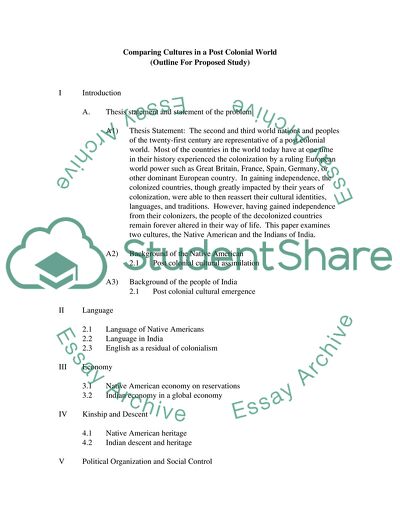
- Home
- Free Samples
- Premium Essays
- Editing Services
- Extra Tools
- Essay Writing Help
- About Us
- Studentshare
- Subjects
- Miscellaneous
- Anthro Compare and Contrast
Anthro Compare and Contrast - Essay Example

- Subject: Miscellaneous
- Type: Essay
- Level: Ph.D.
- Pages: 4 (1000 words)
- Downloads: 0
- Author: doviedooley
Extract of sample "Anthro Compare and Contrast"
Please choose "living" cultures only.. not ancient cultures. (i.e., modern Athenian Greeks are acceptable, but not Ancient Athenian Greeks). Describe the characteristics. The characteristics to choose from follow the flow of our course material and are as follows: To receive full credit for the references portion of this assignment, you should have 5 or more annotated references. Annotations should be between 100-200 words in length and include full APA citation. See the APA Tip sheet for tips on annotating your references- ASK NOW if you have questions (I realize this may be a new skill for some of you :)! A1) Thesis Statement: The second and third world nations and peoples of the twenty-first century are representative of a post colonial world.
Most of the countries in the world today have at one time in their history experienced the colonization by a ruling European world power such as Great Britain, France, Spain, Germany, or other dominant European country. In gaining independence, the colonized countries, though greatly impacted by their years of colonization, were able to then reassert their cultural identities, languages, and traditions. However, having gained independence from their colonizers, the people of the decolonized countries remain forever altered in their way of life.
This paper examines two cultures, the Native American and the Indians of India. Finger, J. R. (1991). The Eastern Band of Cherokees in the Twentieth Century The Eastern Band of Cherokees in the Twentieth Century. Lincoln, NE: University of Nebraska Press. Retrieved October 7, 2007, from Questia database: http://www.questia.com/PM.qst?a=o&d=10031081 John R. Finger’s book is appropriate for the research proposed here, because its focuses is on the modern Cherokee, and those who retained their southeastern heritage, not in Georgia, but in North Carolina.
They avoided being relocated to the American west. Since American law
...Download file to see next pages Read MoreCHECK THESE SAMPLES OF Anthro Compare and Contrast
The Law of Contracts
Doctors and patients
My Mistress Eyes by William Shakespeare
The book Marriage Morals by Bertrand Russell
Impact of Culture on Negotiation Process
NEC3 and JCT: A Comparative Analysis
Answer 10 questions after reading
Similarities and Contrast between Jay Gatsby and Amory Blaine

- TERMS & CONDITIONS
- PRIVACY POLICY
- COOKIES POLICY